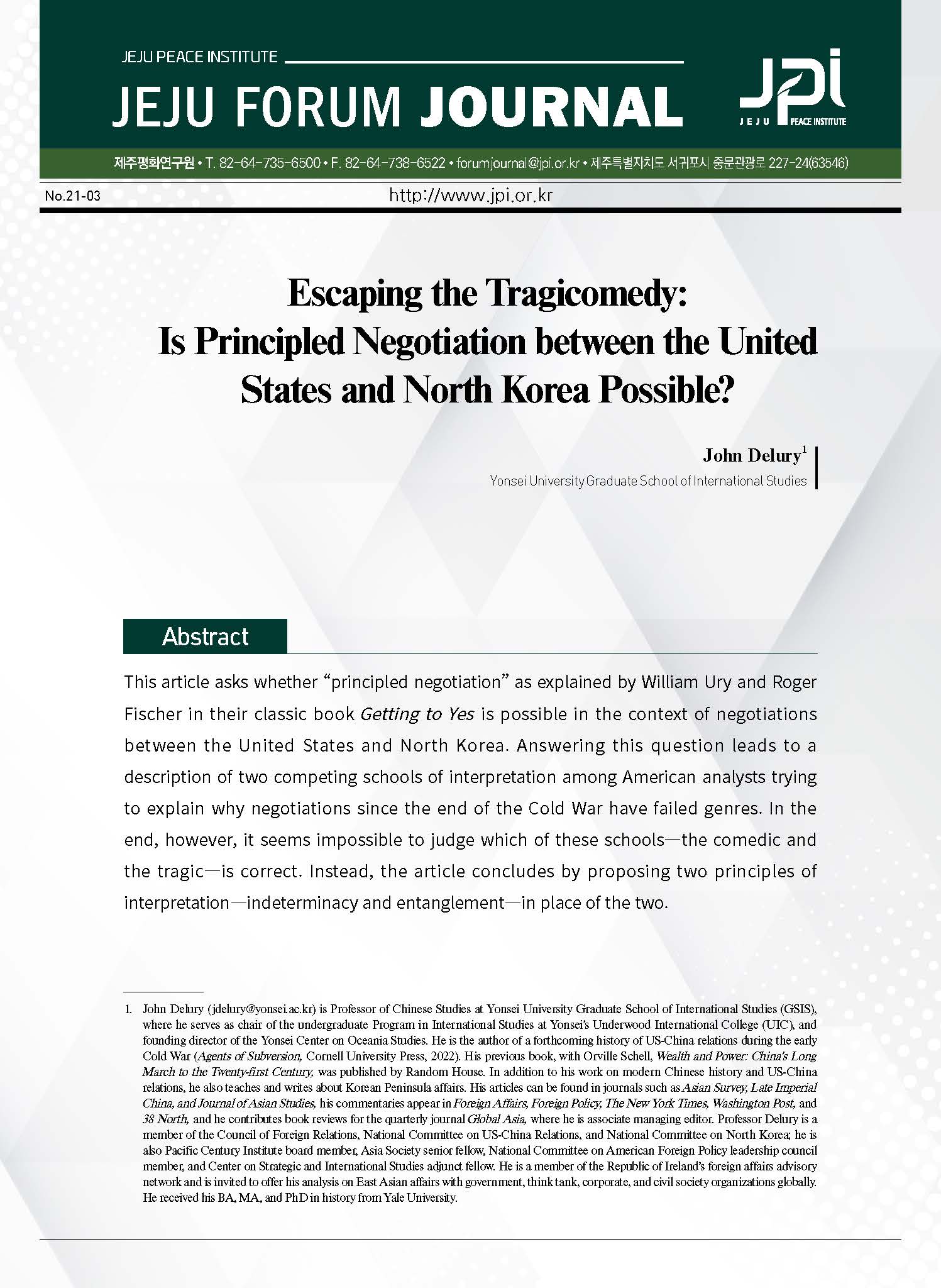This article asks whether “principled negotiation” as explained by William Ury and Roger Fischer in their classic book Getting to Yes is possible in the context of negotiations between the United States and North Korea. Answering this question leads to a description of two competing schools of interpretation among American analysts trying to explain why negotiations since the end of the Cold War have failed genres. In the end, however, it seems impossible to judge which of these schools—the comedic and the tragic—is correct. Instead, the article concludes by proposing two principles of interpretation—indeterminacy and entanglement—in place of the two.
저자
John Delury (jdelury@yonsei.ac.kr) is Professor of Chinese Studies at Yonsei University Graduate School of International Studies (GSIS), where he serves as chair of the undergraduate Program in International Studies at Yonsei’s Underwood International College (UIC), and founding director of the Yonsei Center on Oceania Studies. He is the author of a forthcoming history of US-China relations during the early Cold War (Agents of Subversion, Cornell University Press, 2022). His previous book, with Orville Schell, Wealth and Power: China’s Long March to the Twenty-first Century, was published by Random House. In addition to his work on modern Chinese history and US-China relations, he also teaches and writes about Korean Peninsula affairs. His articles can be found in journals such as Asian Survey, Late Imperial China, and Journal of Asian Studies, his commentaries appear in Foreign Affairs, Foreign Policy, The New York Times, Washington Post, and 38 North, and he contributes book reviews for the quarterly journal Global Asia, where he is associate managing editor. Professor Delury is a member of the Council of Foreign Relations, National Committee on US-China Relations, and National Committee on North Korea; he is also Pacific Century Institute board member, Asia Society senior fellow, National Committee on American Foreign Policy leadership council member, and Center on Strategic and International Studies adjunct fellow. He is a member of the Republic of Ireland’s foreign affairs advisory network and is invited to offer his analysis on East Asian affairs with government, think tank, corporate, and civil society organizations globally. He received his BA, MA, and PhD in history from Yale University.
